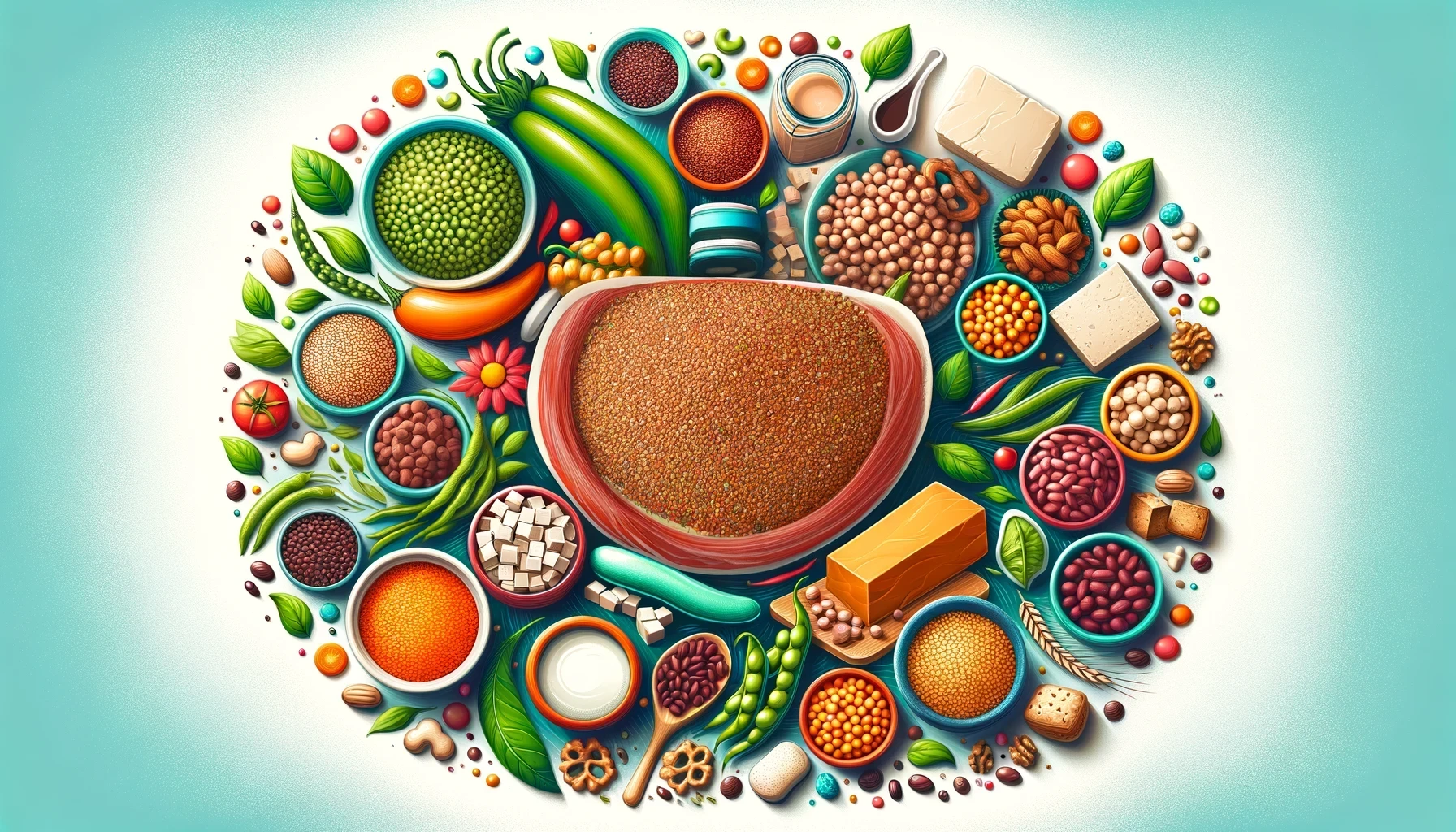In recent years, plant-based diets have gained significant popularity, and with good reason. They offer numerous health benefits, including improved heart health, weight management, and a reduced risk of chronic diseases. One of the most common questions for those considering a plant-based diet is, “Where do you get your protein?” This blog post will explore the best sources of plant-based protein, their benefits, and how to incorporate them into your diet.
Introduction to Plant-Based Proteins:
Protein is a crucial macronutrient that plays an essential role in building and repairing tissues, producing enzymes and hormones, and supporting overall health. While animal products are well-known sources of protein, plants also offer a diverse and rich array of protein sources that can meet your dietary needs.
Top Plant-Based Protein Sources:
- Legumes:
- Lentils: Packed with protein, fiber, and iron, lentils are a versatile ingredient in soups, stews, and salads.
- Chickpeas: Also known as garbanzo beans, chickpeas are great in hummus, salads, and curries.
- Black Beans: High in protein and fiber, black beans are perfect for tacos, burritos, and bean salads.
- Nuts and Seeds:
- Almonds: A handful of almonds can provide a significant protein boost along with healthy fats.
- Chia Seeds: These tiny seeds are protein-packed and can be added to smoothies, oatmeal, and baked goods.
- Hemp Seeds: Rich in protein and omega-3 fatty acids, hemp seeds are excellent for sprinkling on salads and yogurt.
- Whole Grains:
- Quinoa: A complete protein containing all nine essential amino acids, quinoa is a great base for salads and bowls.
- Brown Rice: High in protein and fiber, brown rice is a staple grain that pairs well with a variety of dishes.
- Oats: Start your day with a protein-packed bowl of oatmeal topped with fruits and nuts.
- Vegetables:
- Broccoli: This cruciferous vegetable offers a surprising amount of protein along with vitamins and minerals.
- Spinach: High in protein and iron, spinach can be added to smoothies, salads, and sautés.
- Peas: Peas are a great protein source and can be used in soups, stir-fries, and as a side dish.
Benefits of Plant-Based Proteins:
- Heart Health: Plant-based proteins are typically lower in saturated fats, which can reduce the risk of heart disease.
- Digestive Health: Many plant-based proteins are rich in fiber, promoting healthy digestion and preventing constipation.
- Weight Management: High-fiber, plant-based proteins can help you feel fuller for longer, aiding in weight management.
- Nutrient Density: Plant-based proteins often come with a variety of vitamins, minerals, and antioxidants that contribute to overall health.
Tips for Incorporating Plant-Based Proteins into Your Diet:
- Variety is Key: Include a variety of protein sources to ensure you’re getting all essential amino acids.
- Plan Your Meals: Make sure each meal contains a source of plant-based protein to meet your daily requirements.
- Experiment with Recipes: Try new recipes and cooking methods to keep your meals exciting and flavorful.
Sample Meal Plans:
- Breakfast: Smoothie with spinach, banana, chia seeds, and almond milk.
- Lunch: Quinoa salad with black beans, corn, avocado, and a lime-cilantro dressing.
- Dinner: Lentil curry with brown rice and steamed broccoli.
- Snacks: Almonds, hummus with veggie sticks, or a chia seed pudding.
Embracing plant-based proteins can be a delicious and nutritious way to meet your dietary needs. Whether you’re a seasoned plant-based eater or just starting, there are plenty of options to keep your meals exciting and protein-rich. With a little planning and creativity, you can enjoy all the benefits of plant-based proteins and enhance your overall health.
